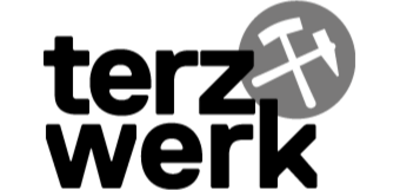Dr. Timo Lenk
Responsibilities
EU-funded project ADAC.io

Fields of Research
Strategic communication, information manipulation, disinformation, organisational communication, complexity research
Background
- 2020-2024 Lecturer and doctoral candidate at the chair of Organizational Communication, Institute of Political Science and Communication Studies, University of Greifswald
- 2017–2020 M. A. Strategic Communication, Department of Communication Studies, University of Münster
- 2017-2020 Student Tutor accompanying the introductory lecture for communication studies, Department of Communication Studies, University of Münster
- 2014-2017 B. A. Communication Studies, Department of Communication Studies, University of Münster
Publications
- Lenk, T. (2025). Interessenwidersprüche und Komplexität im Kontext der Organisationskommunikation. Springer eBooks. https://doi.org/10.1007/978-3-658-47075-3
- Lenk, T. (2025). Conflicts of interest and complexity in the context of organizational communication. Springer eBooks. https://doi.org/10.1007/978-3-658-48895-6
- Lenk, T. (2024). Desinformation als wahrhaft komplexes Phänomen: Zu einem Beitrag der Komplexitätstheorie für die Desinformations- und Organisationskommunikationsforschung. In: Hoffjann, O., Seeber, L., von der Wense, I. (eds) Strategische Wahrheiten. Springer VS, Wiesbaden. https://doi.org/10.1007/978-3-658-43831-9_3
- Lenk, T. (2023). Navigating moral minefields in a VUCA world: the contribution of moral foundations theory to strategic communication research and practice. Journal of Communication Management, https://doi.org/10.1108/JCOM-12-2022-0139
- Lenk, T. & Thummes, K. (2022). Moralische Perspektiven von Rezipient:innen auf Wert- und Interessenkonflikte beim Einsatz künstlicher Intelligenz in der strategischen Kommunikation). In K. Thummes, A. Dudenhausen & U. Röttger (Hrsg.), Wert- und Interessenkonflikte in der strategischen Kommunikation (S. 185-204). Wiesbaden: Springer VS. https://doi.org/10.1007/978-3-658-35695-8_10
Talks (Selection)
- Lenk, T. (2025): Panel “Collaborative defence: Joining together the puzzle pieces of the Counter Disinformation community”. Democracy Reporting International's DisinfoCon 2025, Embassy of Canada to Germany, Berlin.
- Lenk, T. (2025): Techniques and Patterns of Digital Information Manipulation. Inter-regional Platform for Cybersecurity Research, Ministry of the Interior of the State of North Rhine-Westphalia, Düsseldorf.
- Lenk, T. (2025): Types of Misinformation and the Role of Broader Manipulation Techniques. First German Workshop on Detecting and Combating Disinformation, Misinformation and Hate Speech for Media Professionals and Communication Practitioners, University of Potsdam and Max Planck Institute for Human Development, Berlin.
- Lenk, T. (2025): Disinformation in the Age of Artificial Intelligence. 11th SWF Annual Forum 2025 – Communication and AI, Berlin.
- Lenk, T. (2024): Information Manipulation as a Phenomenon of Political Communication. Annual Conference of the DGPuK Division for Public Relations and Organizational Communication, Berlin.
- Lenk, T. (2024): Information Operations and the Weaponization of Strategic Communication: Introducing the Concept of Foreign Information Manipulation and Interference to Strategic Communication Research. Talk in the series CeCoR@ASCoR, Amsterdam School of Communication Research, Amsterdam.
- Lenk, T. (2022): Complexity Theory as a Theoretical Framework for Examining Disinformation Phenomena in Organizational Communication Research. Annual Conference of the DGPuK Division for Public Relations and Organizational Communication, Bamberg, Germany.
- Lenk, T. (2022): Navigating Moral Minefields in a VUCA World: The Contribution of Moral Foundations Theory to Research on Issues Management, Risk and Crisis Communication. Annual Conference of the European Public Relations Education and Research Association, Vienna.
- Thummes, K., & Lenk, T. (2021): Perception of AI and the Reproduction of Myths. Online workshop Ethics, Hype and Consequences of Artificial Intelligence, University of Greifswald.
Courses (selection)
- Artificial intelligence in organizational communication
- Diffusion, reception, and persuasion in strategic communication
- Protests, movements, and social organization – social transformation and the fight for the public sphere
- Corporate communications between profit and responsibility
- Complexity theory in organizational communication
Awards
Best Paper Award of the European Public Relations Education and Research Association (EUPRERA) for the contribution Navigating Moral Minefields in a VUCA-World: The Contribution of Moral Foundations Theory to Research on Issues Management, Risk and Crisis Communication, Vienna 2022.






